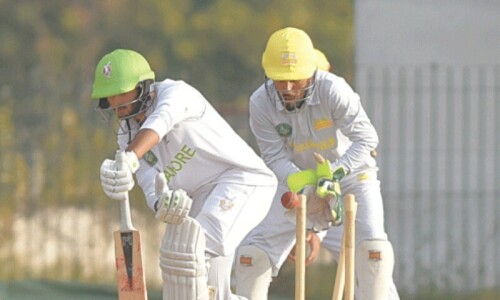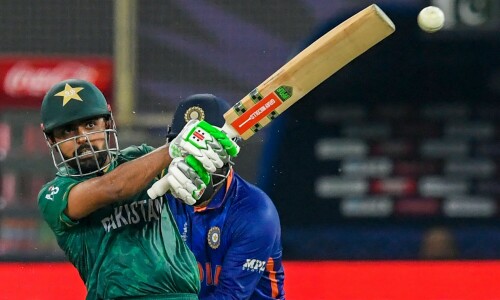MELBOURNE, Dec 6: Noted cricket writer Peter Roebuck of England has urged the BCCI to join hands with the ‘rebel’ Indian Cricket League for the sake of uprooting corruption from the Twenty20 leagues which he believes were in the clutches of the bookmakers.
“Conversations with ICL players confirm that the bookmakers are running amok in the rebel league, and it’d be the height of folly to assume that the Indian Premier League has remained intact,” Roebuck wrote in the Sydney Morning Herald.
“Conversations with the IPL players suggest that the official brand is equally vulnerable to outside forces. No stone must be left unturned to rid the game of malefactors,” he said.
Roebuck praised the ICL authorities for confronting the challenge. “Before the competition began, [ICL] officials asked the ICC to provide corruption officers to supervise the contests but the game’s governing body pointed out that it had no jurisdiction over a breakaway domestic tournament and advised the ICL to make its own arrangements.
“To that end, officers were appointed. Officials were amazed to learn cricketers could be offered $40,000 merely to score five runs or fewer in the 10th over of an innings. At least, the ICL confronted the challenge. It could easily have let things roll along,” he added.
“The IPL includes numerous players of untarnished reputation entitled to be treated with respect and protected from the unsavoury. To that end, the BCCI and IPL need to step up their anti-corruption activities. They could start by talking to ICL officials, and obtaining from them the names and numbers of the identified “businessmen”,” he said.
Roebuck, who was recently in India for the four-Test series between the two teams, said hints were clearly sprinkled in players’ discussion after matches.
“These players talk about strange events in matches, and one thinks he played in a match both sides were trying to lose. Others speak about batsmen suddenly playing out a maiden or padding up to a spinner, an odd technique to use in a 20-over contest,” he said.
“They talk about long faces among a few team-mates after a match had been won thanks to an innocent youthful rally. And they confirm it is possible to be unaware that colleagues, even captains, are following a preordained plan.”
Roebuck said while only top players bore the brunt of match-fixing scandal in 2000 bookies went unpunished and have raised their hoods again. “No bookie was convicted in the aftermath of the scandal that exposed several Test captains, itself only a sample of those involved,” he said and added: “20-over cricket has lured them [bookies] from their hideaways”. Former skippers Mohammad Azharuddin of India, Salim Malik of Pakistan and Hansie Cronje of South Africa were caught in the match-fixing net.
He disclosed his visit to one of the bookies, who refused to spill the beans on the matter. “The Herald visited “John”, one of the bookies, in his jewellery shop in Delhi, but the request to spill the beans was rejected on the grounds that 100 rupees was insufficient motivation.”—Agencies














































Dear visitor, the comments section is undergoing an overhaul and will return soon.